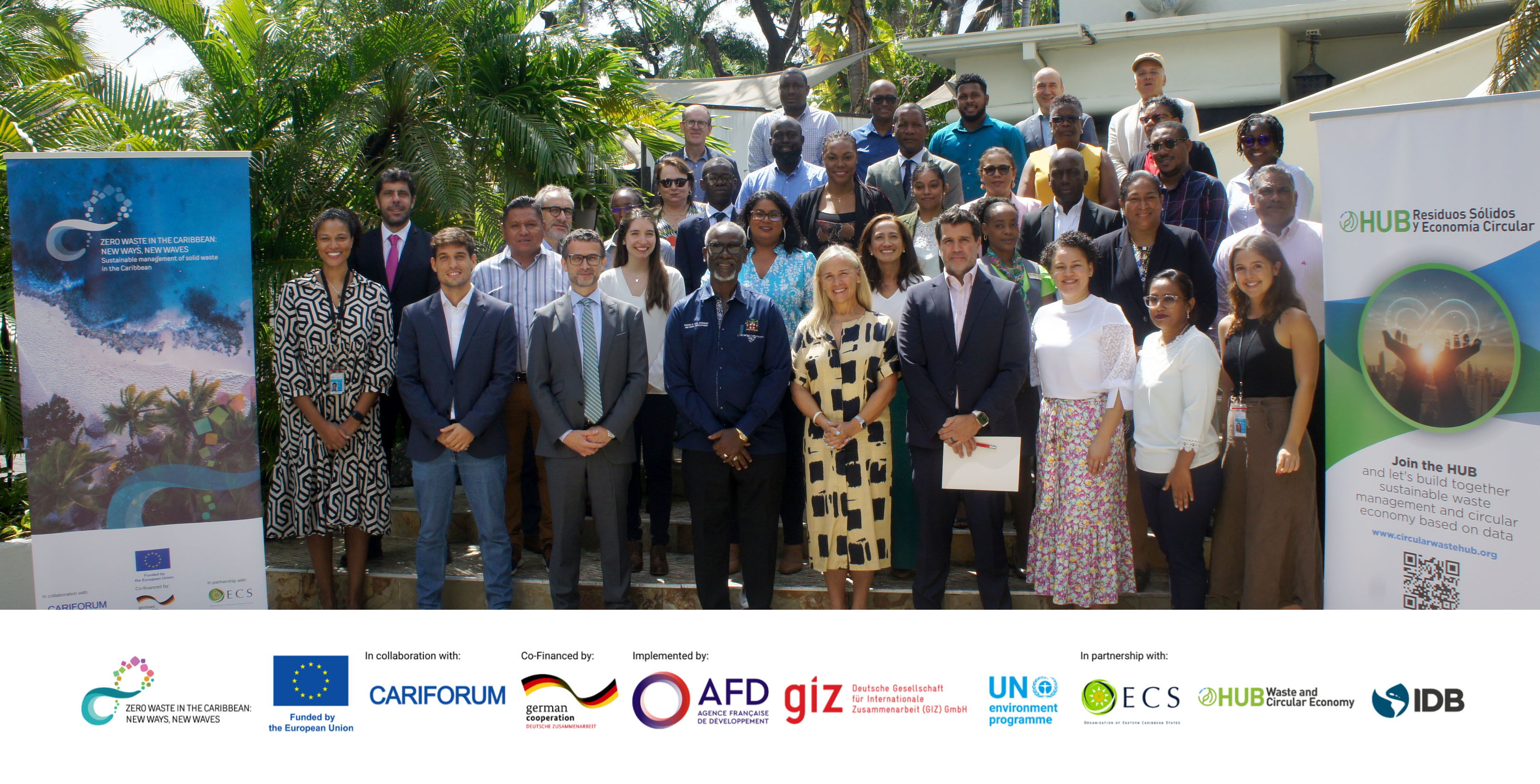Caribbean Countries Meet in Jamaica to share their experiences on Waste Management to Better Protect the Environment
Courtesy of UNEP
Kingston Jamaica, September 13, 2023 — In an effort to address the growing challenges of waste management and environmental sustainability in the Caribbean region, a regional training and technical exchange activity is currently being held in Kingston, Jamaica. The workshop will run from 12-14 September. This initiative aims to strengthen waste information systems and enhance the capacity of participating countries to generate accurate waste management statistics.
The Minister of Local Government and Community Development of Jamaica, Honourable Desmond McKenzie, opened the workshop saying, “Public education has played a key role in the sensitisation of Jamaicans on waste disposal and the risks associated with poor waste management. At the same time, the provision of over 100 trucks to the national Solid Waste Management Authority is helping to keep the streets of Jamaica clean. Through both of these tools, the Ministry of Local Government and Community Development is proving that waste management is high on the country’s agenda.”
The Caribbean region faces unique challenges when it comes to waste management and environmental conservation. As the demand for resources continues to rise, the responsible management of waste becomes increasingly vital. To address these challenges effectively, the Zero Waste in the Caribbean initiative was launched to promote integrated and sustainable waste management in the context of a circular economy in the Caribbean.
The Zero waste in the Caribbean project is funded by the European Union, in collaboration with CARIFORUM, co-financed by the German cooperation and implemented by AFD, GIZ and UNEP, in partnership with the OECS.
The European Union Ambassador, H. E. Marianne Van Steen, attended the opening of the meeting. She underlined the importance of solid waste management strategies in the Caribbean stating that “Small Island Developing States are facing particular challenges when seeking how to best handle solid waste, because of their limited size and because of their limited waste management capacities. In order to face these challenges, waste data collection and management are key and the sharing of good practices and exchange of experiences during this workshop are essential and extremely valuable.”
The focus of the workshop is on Strengthening Waste Information Systems and Capacity to Generate Waste Statistics, and includes the following key objectives:
- Share good practices and lessons learned in the Caribbean for the improvement of waste data and statistics and associated indicators, especially from the four case study countries of the project.
- Strengthen waste information systems and capacity to deliver waste statistics by facilitating the integration of the Caribbean countries in the Waste and Circular economy Hub for Latin-America and the Caribbean.
- Promote the harmonisation of waste information systems in the Caribbean, strengthening their sustainability and enhancing regional cooperation in this field.
- Prepare draft work plans to improve the availability and reliability of data related to waste management and the circular economy.
- Network with peers, experts, and organisations involved in waste management and environmental conservation, fostering collaboration and information exchange.
The workshop will include virtual and in-person sessions and participants. Government officials, environmental professionals, waste management experts, and representatives from relevant organisations and institutions from across the Caribbean region will be in attendance.
This initiative is made possible through collaboration with the European Union, CARIFORUM, the German Development Cooperation, United Nations Environment Programme (UNEP), the German Agency for International Cooperation (GIZ), the French Development Agency (AFD), the Organisation of Eastern Caribbean States (OECS), and the Inter-American Development Bank (IDB), who are all committed to supporting sustainable waste management practices in the Caribbean.
UNEP is excited to facilitate this important workshop, which is expected to have a lasting impact on waste management practices and environmental preservation efforts in the region. Mr. Jordi Pon, UNEP Programme Management Officer, declared “Within the Caribbean region there is a need to strengthen waste information systems, in order to guide informed policy development and decision making. By sharing experiences and best practices between the different countries, we can also facilitate a harmonised approach across the region”.
Danny Moonie
OECS Communications Unit
